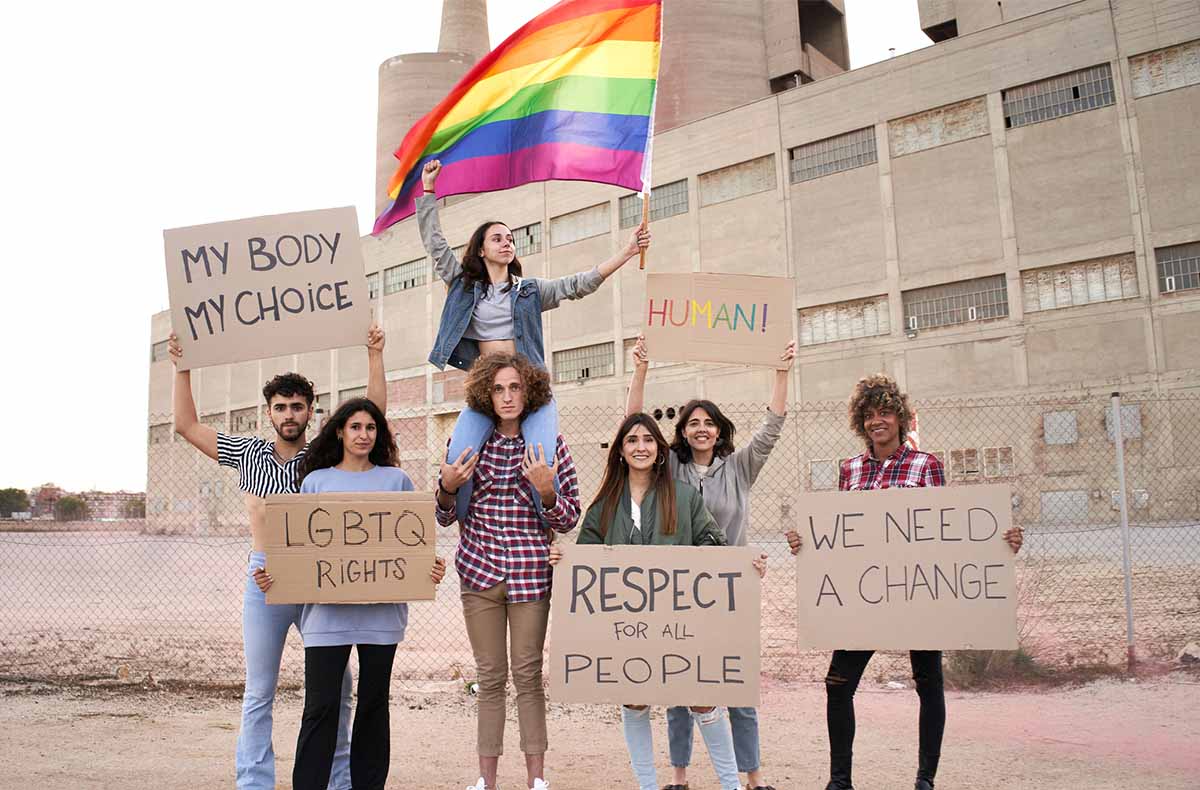
Back in July, the common thinking had been that the WGA strike would probably conclude in October. It’s hard to know what will happen at this point especially after the AMPTP and WGA met for the first time since talks broke down on May 1. The unfortunate news is that talks to resume negotiations have come to a swift end.
The WGA offered a negotiation update on August 4 after Ellen Stutzman and Tony Segall met with Carol Lombardini and AMPTP staff. It was supposedly a confidential meeting where the AMPTP insisted on a press blackout, but the trades were all over it in asking the WGA for comment before they addressed their membership.
“She stated they were willing to increase their offer on a few writer-specific TV minimums—and willing to talk about AI—but that they were not willing to engage in the preservation of the writers’ room, or success-based residuals. She did not indicate a willingness to address screenwriter issues, Appendix A issues, and many of the other proposals that remain on our list.”
The WGA is asking the studios to address other issues that are arising as a result of the strike. These include healthcare benefit extension/additional plan funding, reinstating striking writers, and any arbitration of disputes because of the strike. One of the sticking points in showing how far apart the parties are is that the WGA is seeking the right for individual members to honor the other picket lines as other unions have honored their picket lines. While the AMPTP wants people to get back to work, they need to realize that they have their own work to do in making it a reality.
The impetus is on the studios to realize that they’ve got to reach an agreement with both the WGA and SAG-AFTRA. The longer that both strikes go on, it’s going to have a devastating impact on Hollywood. That being said, it’s important to note that both guilds are in the right for striking. It’s on the studios to wake up and realize that they’re going to destroy the industry if they can’t get Hollywood back to work.
This starts by offering fair compensation when it comes to sharing in the success of streaming. There have been too many images posted on social media of actors’ and writers’ residual checks. The fact that they’re making mere pennies shows that the current formula for a film or series licensed to streaming is outdated and in major need of change. When one considers how much money a CEO makes, it’s a drop in the bucket for the studios. However, they don’t seem to be budging.
When the DGA released their ratification vote numbers, about 10,000 members didn’t vote at all. The final vote revealed that 87% voted in favor of the new contract agreement—but that’s out of only 6,728 who voted. The AMPTP seems to think that they can offer the same deal to writers and performers.
This is one key area in which both parties are just too far apart. SAG-AFTRA is asking for no less than an 11% increase in minimum earnings but the AMPTP doesn’t want to budge on that even though there was record inflation impacting the cost of living during the previous contract. They’d rather keep the status quo. And again, the longer they don’t offer fair compensation, the longer the strikes will be.
Another key area where both parties are far apart is AI. Studios think that they can just pay a background actor for a single day’s work and scan in their likeness to keep in perpetuity. That’s not how Hollywood should be working. On the writing front, AI simply cannot substitute for the hard work that writers put into their scripts, from the first draft to the last rewrite before shooting.
AI cannot edit a film or series in post-production. AI indeed did the opening title design for Marvel’s Secret Invasion, but even this came with deserved backlash. Artists doing the input still doesn’t make it right when animators are right there!
The further the strikes go on, the more devastating it will be for not just Hollywood, but for everyone. Comic Cons allow fans to interact with actors during panels in addition to autographs and photo ops. As much as the conventions say that the strikes don’t impact them, the truth of the matter is that they do.
If someone doesn’t keep up with a conventions page, they wouldn’t know that actors are not allowed to bring images of stills from struck work. They’re not allowed to discuss their struck work during a panel. Michael J. Fox, Christopher Lloyd, Lea Thompson, and Thomas Wilson are all attending Fan Expo Chicago (August 10-13, 2023). While they were supposed to do a reunion panel, the panel was canceled because of the strike rules prohibiting them from discussing past work. This is where the SAG-AFTRA strike rules are stricter than WGA’s strike rules.
Meanwhile, Jamie Lee Curtis, Stephen Amell, and Zachary Levi have all had to walk back comments after going viral for the wrong reasons.
The studios might say that they have enough content to last into next year. That may be true to an extent, as films are being pushed back because they want the cast and crew to share in its opening. Instead of delaying films, the studios could end the strikes right now by offering a fair contract to both the WGA and SAG-AFTRA.



